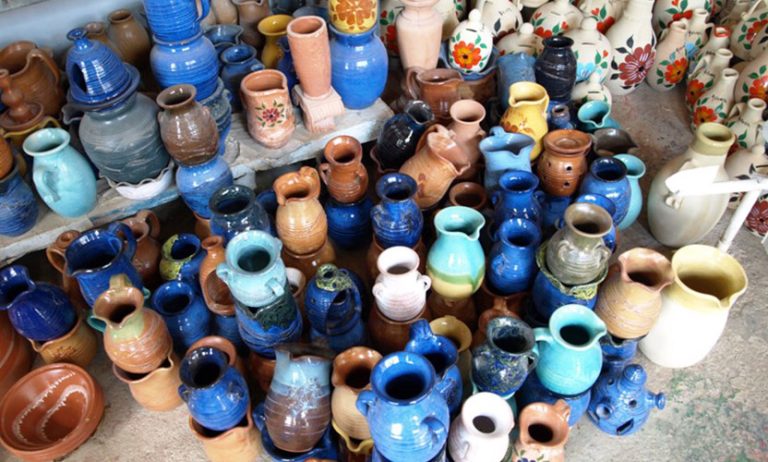Greece, Aegina
The clay water vessels of Aegina Island

Hydria Virtual Museum
Relevance
The island of Aegina has long been recognised as a major production and export centre of a variety of ceramic pots not only in the recent past but since the Classical antiquity and even during the Middle and Late Bronze Age.
Pottery and especially the water vessels known as kanatia have been through the centuries as one of the trademarks of Aegina. Kanatia, widely used from 19th century to mid 20th century throughout Greece, owed their popularity mainly to their innovative construction, succeeding in cooling the water. Therefore, they have played an important economic, social and cultural role.
In this case study we focus on the clay water vessels in Aegina Island, especially as these have been traditionally produced in the recent past. We explore the pots’ characteristics, the type of clay used and the traditional crafting technique.
Moreover, the evolution of the use of these pots is presented; from being an indispensable household utensil a few decades ago, to a folklore touristic souvenir in our days.